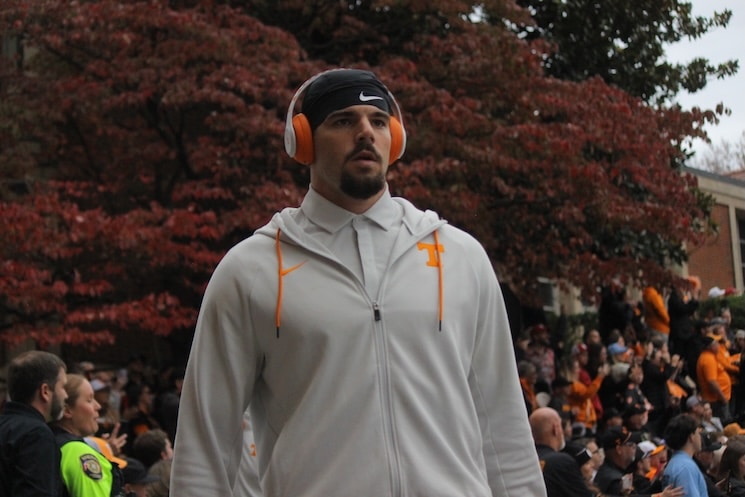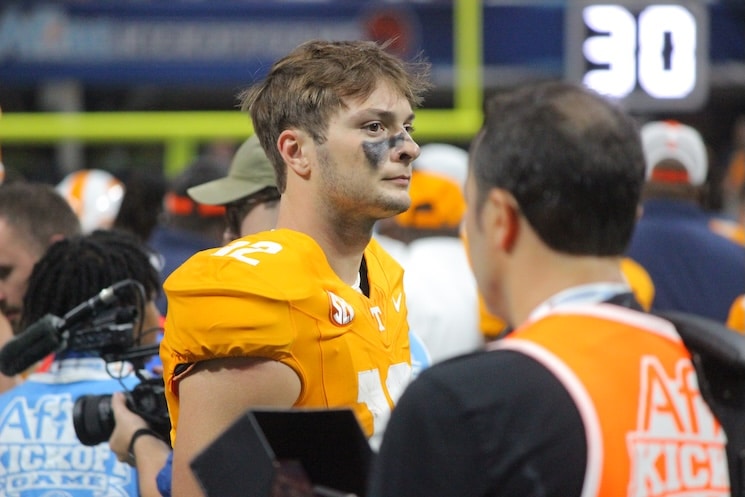
According to documents filed on Wednesday, May 1, the State of Florida, the State of New York, and the District of Columbia have joined the State of Tennessee and the Commonwealth of Virginia’s multistate coalition in their lawsuit against the NCAA.
The Federal Antitrust Lawsuit now has signatures from Florida Attorney General Ashley Moody, New York Attorney General Letitia James, and District of Columbia Attorney General Brian L. Schwalb, in addition to previous signatures from Tennessee Attorney General Johnathan Skrmetti and Virginia Attorney General Jason S. Miyares.
“The States of Tennessee, Florida, New York, the District of Columbia, and the Commonwealth of Virginia bring this antitrust case against the National Collegiate Athletic Association,” the amended complaint in the document reads. “The NCAA started enforcing rules that unfairly restrict how athletes can commercially use their name, image, and likeness (better known as ‘NIL’) at a critical juncture in the recruiting process. These anticompetitive restrictions violate the Sherman Act, harm the States’ economies and the welfare of their athletes, and should be declared unlawful and enjoined.”
The 22-page document was filed on Wednesday, May 1.
“We’re glad to keep fighting to protect student-athletes from illegal NCAA rules. I welcome the addition of our bipartisan partners to the case,” Tennessee Attorney General Jonathan Skrmetti said in a statement on May 1. “The ultimate goal is to get the lawyers out of this and let student-athletes compete under fair and clear rules, but in the meantime, we’ll do our part to move things in the right direction.”
On Feb. 23, Eastern District Court of Tennessee Judge Clifton L. Corker granted a preliminary injunction against the NCAA, suspending the NCAA’s ability to enforce its rules regarding name, image, and likeness (NIL) benefits until the full case was heard or a decision/ruling had been given out.
Judge Corker’s decision prompted NCAA President Charlie Baker to halt their then-current investigations into booster-backed collectives or third-party companies dealing with name, image, and likeness on Mar. 1.
“There will be no penalty for conduct that occurs consistent with the injunction while the injunction is in place,” Baker wrote in a statement on Mar. 1, according to the Associated Press. “I agree with this decision, while the progress toward long-term solutions is underway and while we await discussions with the attorneys general. In circumstances that are less than ideal, this at least gives the membership notice of the board’s direction related to enforcement.”
Going back to the initial moves made by Tennessee and Virginia in late January, the question on many’s minds revolved around the potential of other states joining the lawsuit down the road. Seeing that the preliminary injunction was considered a win for the Attorney Generals, it makes sense that other states are now climbing in. The move made by Florida, New York, and the District of Columbia on Wednesday could incentivize even more states to jump in – we’ll just have to wait and see.
“The NIL-recruiting ban is not the first time that the NCAA, after having been forced to allow a market to emerge post-Alston, tried to artificially restrict that market. A federal court, in a lawsuit joined by Tennessee, New York, the District of Columbia, and Virginia, recently stopped a similar maneuver by the NCAA, where the NCAA tried to restrict players from entering the transfer portal twice. There, the court found that ‘the NCAA’s transfer rules’ imposed a ‘direct restraint on trade’ that implicates the Sherman Act,” the document reads in paragraph six of the introduction.
To view the full 22-page amended document from Wednesday, click here.



